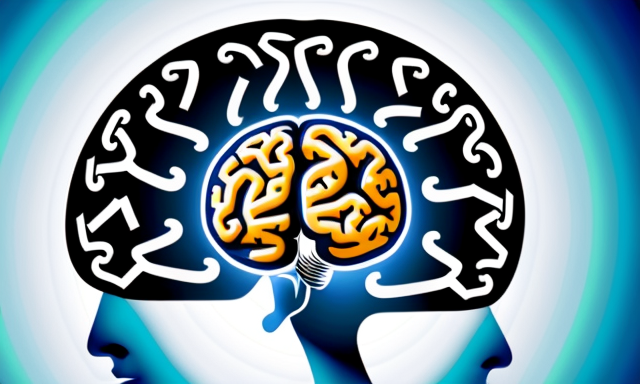The human brain, a marvel of complexity and sophistication , plays a pivotal role in shaping our lives and the world around us. It controls our thoughts, emotions, movements, and memories, making it essential for our overall well-being. However, in the modern world, several brain-related issues have become increasingly prevalent, affecting millions of people globally, including in India.
World Brain Day, observed on July 22nd each year, serves as a reminder to focus on brain health and raise awareness about various brain disorders, their symptoms, potential cures, and preventive measures.
Modern-Day Brain Issues:
Advancements in technology, changing lifestyles, increased stress, and environmental factors have contributed to the rise of brain-related issues. Some of the most common modern-day brain disorders include:
1. Anxiety and Depression: Mental health conditions like anxiety and depression have become widespread, affecting people of all ages. The fast-paced urban lifestyle, work pressures, and social isolation can all contribute to the prevalence of these disorders.
2. Alzheimer's Disease and Dementia: As life expectancy increases, so does the incidence of age-related brain disorders like Alzheimer's disease and other forms of dementia. These conditions affect memory, cognitive function, and daily living activities.
3. Stroke: With sedentary lifestyles and unhealthy dietary habits becoming more common, the risk of stroke, a condition where blood flow to the brain is interrupted, has risen significantly.
4. Migraines and Headaches: Stress, irregular sleep patterns, and unhealthy diets can trigger migraines and chronic headaches, affecting productivity and overall well-being.
5. Neurodevelopmental Disorders: Conditions such as Attention Deficit Hyperactivity Disorder (ADHD) and Autism Spectrum Disorder (ASD) affect children's cognitive, emotional, and social development.
Symptoms and Diagnosis:
Recognizing the symptoms of brain issues is crucial for early detection and effective treatment. Some common signs to look out for include:
- Persistent feelings of sadness, anxiety, or hopelessness.
- Memory problems and difficulty in recalling recent events.
- Sudden severe headaches, dizziness, and loss of balance.
- Changes in behavior or difficulty concentrating.
- Seizures or unexplained shaking.
- Impaired motor skills and coordination.
Diagnosing brain disorders involves a combination of medical history evaluation, neurological examinations, brain imaging, and sometimes, psychological assessments.
Cure and Treatment:
The treatment for brain issues varies based on the specific disorder and its severity. Here are some common approaches to managing brain-related conditions:
1. Medication: In cases of anxiety, depression, and other mental health disorders, medications such as antidepressants or anxiolytics can be prescribed by qualified healthcare professionals.
2. Therapy: Psychological therapies, such as cognitive-behavioral therapy (CBT), can be effective in addressing mental health issues and helping individuals develop coping mechanisms.
3. Lifestyle Changes: Adopting a healthy lifestyle, including regular exercise, balanced nutrition, and sufficient sleep, can significantly contribute to brain health and overall well-being.
4. Brain Exercises: Engaging in activities that stimulate the brain, such as puzzles, games, and learning new skills, can help improve cognitive function and memory.
5. Surgery and Interventions: In certain cases, surgical interventions may be necessary to treat brain tumors, vascular malformations, or other structural brain issues.
Precautions and Brain Health in India:
India, with its vast and diverse population, faces unique challenges when it comes to brain health. Here are some essential precautions and measures to promote brain health in India:
1. Raise Awareness: Government bodies, healthcare organizations, and educational institutions should collaborate to increase awareness about brain health, mental health, and the importance of seeking timely medical help.
2. Invest in Healthcare Infrastructure: Enhancing healthcare facilities and access to neurological specialists in both urban and rural areas is crucial to ensure early detection and treatment of brain disorders.
3. Promote Healthy Lifestyles: Public health campaigns should encourage the adoption of healthy lifestyles, including regular exercise, a balanced diet rich in nutrients, and stress reduction techniques.
4. Combat Stigma: Reducing the stigma surrounding mental health issues will encourage more people to seek help and support without fear of judgment.
5. Support Research and Innovation: Funding research initiatives focused on brain health and neurological disorders can lead to better treatment options and preventive strategies.
World Brain Day serves as an important reminder to prioritize brain health and tackle the modern-day brain-related issues affecting individuals in India and across the globe. By understanding the symptoms, seeking timely medical attention, and adopting preventive measures, we can work towards a healthier and happier society with thriving brain health for all.

 World Brain Day, observed on July 22nd each year, serves as a reminder to focus on brain health and raise awareness about various brain disorders, their symptoms, potential cures, and preventive measures.
World Brain Day, observed on July 22nd each year, serves as a reminder to focus on brain health and raise awareness about various brain disorders, their symptoms, potential cures, and preventive measures.










.jpeg)

.jpeg)
.jpeg)
.jpeg)

.jpeg)
.jpeg)
.jpeg)
_(1).jpeg)

_(1)_(1)_(1).jpeg)
.jpeg)
.jpeg)
.jpeg)






